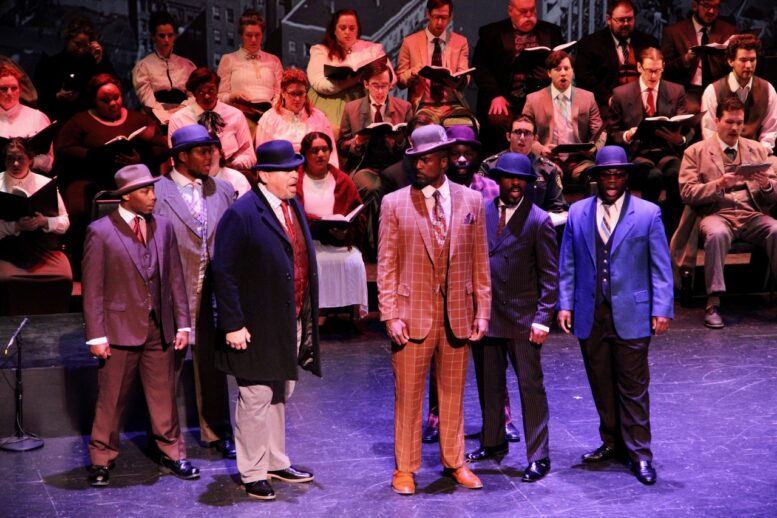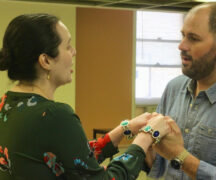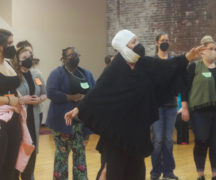By DAVID DUPONT
BG Independent News
In “Ragtime,” we hear America singing.
America does not sing in one voice. The songs come out with a variety of accents — upper crust, middle class aspirants to the upper crust, the ghetto, the shtetl, Black intelligentsia.
These are songs of confidence, hope, yearning, despair, demands, justice, grievance, and anger at justice denied.
In 1906, those songs often had a ragtime beat.
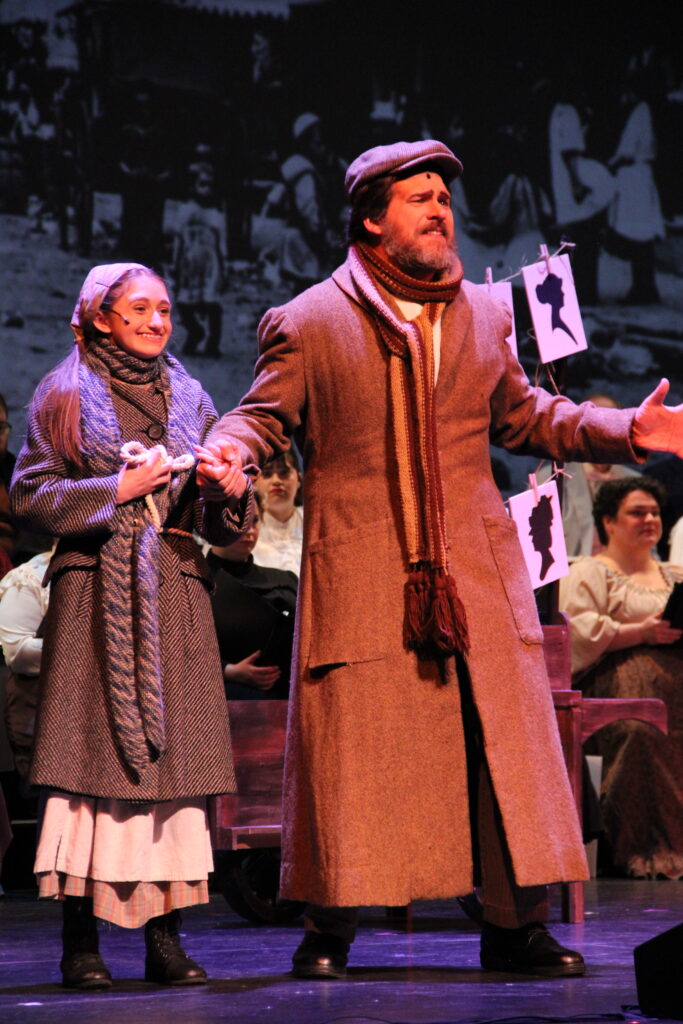
(Photo by Shana Lee courtesy of the Toledo Opera)
The Toledo Opera’s staging of the musical “Ragtime,” based to the novel by E.L. Doctorow, with book by Terrence McNally, music by Stephen Flaherty, and lyrics by Lynn Ahrens, will be presented tonight (Friday, April 19) at 7:30 and Sunday at 2 p.m. at the Valentine Theatre, 400 North Superior, Toledo. “Ragtime” is directed by James Norman, conducted by J. Ernest Green, and choreographed by Domonique Glover.
Those songs are projected in strong, articulate voices. Those emotions are projected in vivid portrayals of the people who shape this world.
In the opening scene we are introduced to the cast of characters, both fictional and historic.
The story centers on three families.
We meet the family in New Rochelle. The Father (Brendan Boyle) has made the family’s fortune manufacturing fireworks and selling other accoutrements for patriotic celebrations. He’s also an amateur explorer who heads off to the North Pole with Robert Peary and Matthew Henson, a Black man whose hand shake he refuses.
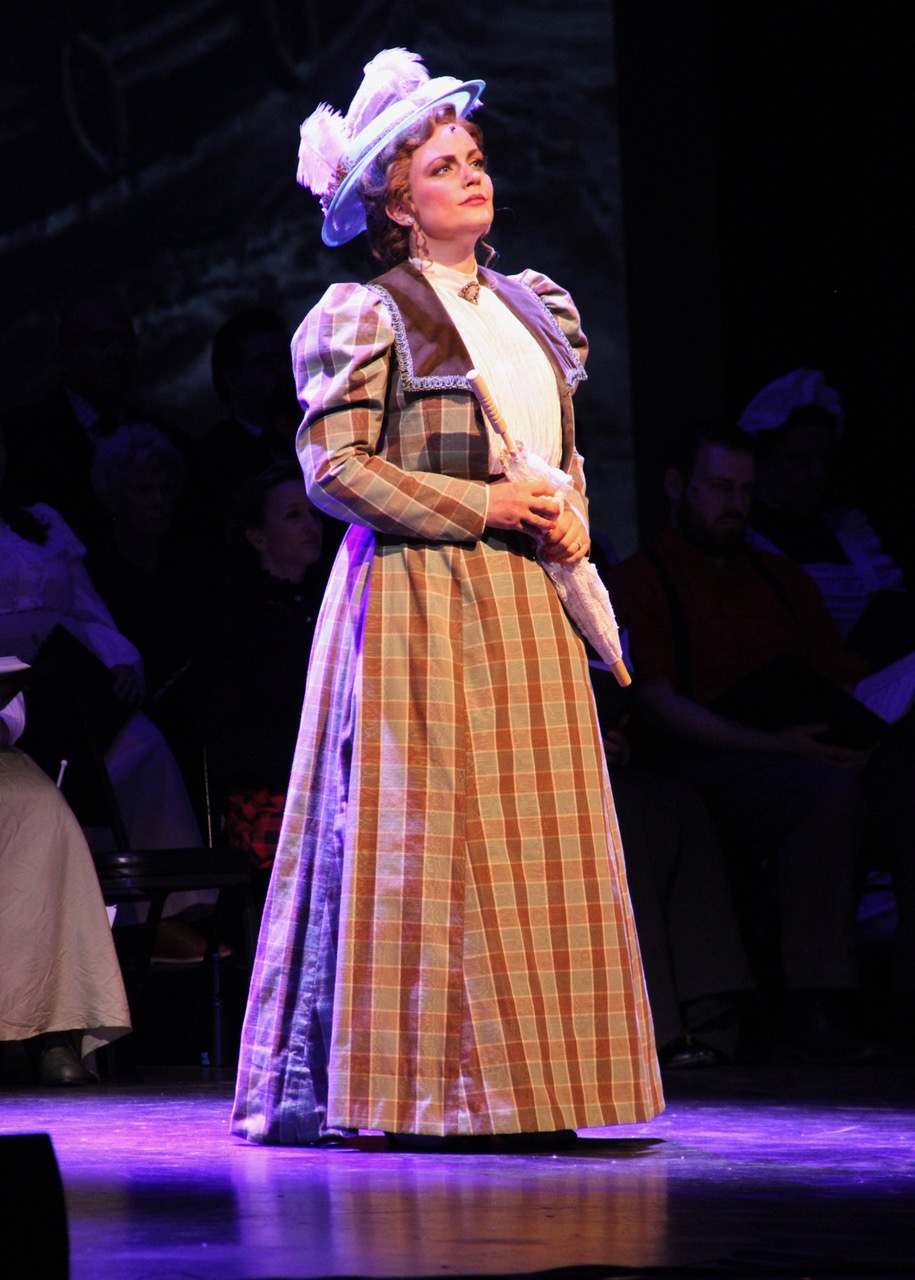
He leaves behind lists and hidden cash for his wife Mother (Raquel Suarez Groen), his young brother-in-law (Nicholas Kottman), and his young son (Elias Fox).
We meet as their ship passes the Peary vessel in the harbor, Tateh (Joshua Jeremiah), a Jewish widower from Latvia, and his daughter (Sophia Bernard), whom he keeps tethered to him lest she gets lost.
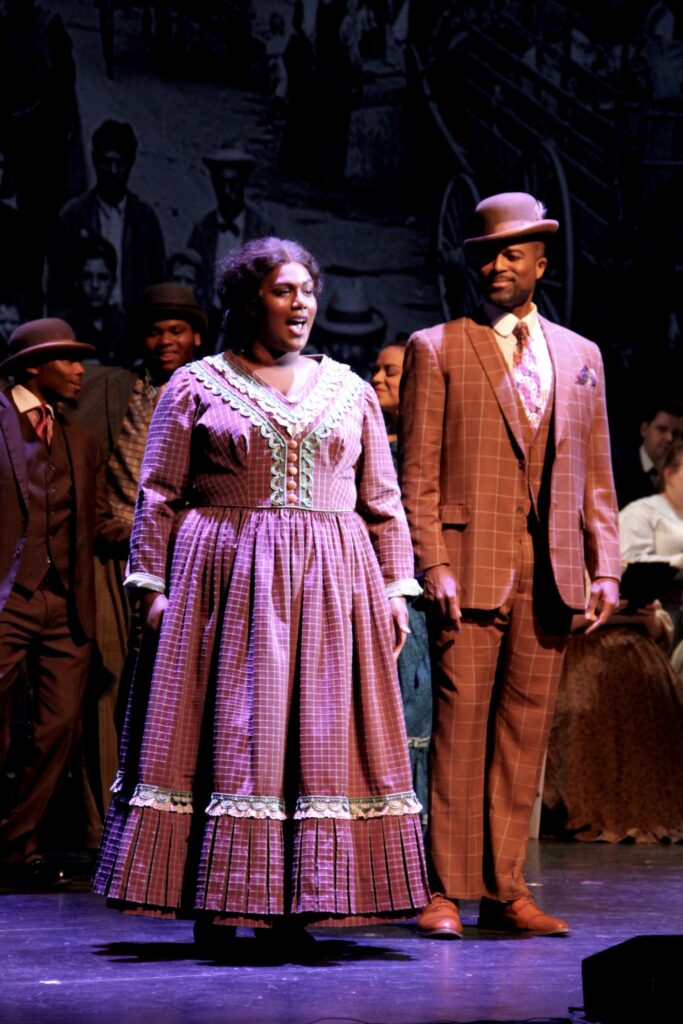
Then we meet Coalhouse Walker (Derrick Davis), a ragtime pianist from Harlem with a strong sense of pride and a tender heart. We must wait a few beats before we meet his estranged lover Sarah (Imara Miles), who gave birth to his son. She and the child have found refuge with the family in New Rochelle while Father is away.
The world of “Ragtime” is one full of movement. There’s the coming and goings of ships. Trains to catch for those seeking a change of opportunity. And there’s Coalhouse Walker’s Model T. More than transportation, it is an object of pride, that a Black man in America could afford such a fine vehicle.
He promises Sarah that they will travel to see America on the “Wheels of Dream.”
That car, though, becomes the object of scorn for a crew of racist firefighters led by chief Willie Conklin (Christopher Stack). Their vicious response to what they view as arrogance is the match that sets Coalhouse’s dreams ablaze.
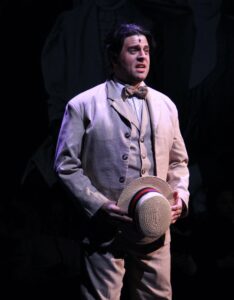
Mother as she watches her husband depart also envisions herself going on her own journey, one not measured in miles, but in inner growth. Her relationship with Sarah and Coalhouse is the path she follows. When her husband returns, she has no interest in going back to when “our road was straight and unbending, not a crossroads in sight. …Back to when I let you make all my choices.”
Tateh and his daughter encounter Mother and her young son. To the boy, the father and daughter are objects of curiosity. To the girl, the boy is rude in the way he stares. But the adults treat each other with courtesy, foreshadowing their meeting down the line.
Tateh tries to earn a living cutting out and selling silhouettes of celebrities or of passers-by on a street corner in New York. Later he moves on to Lawrence, Massachusetts where he works in the brutal conditions of a textile mill and is caught up in the Bread and Roses strike. He later returns to his art still seeking the success he dreams of and promises his little girl.
The celebrities from Tateh’s silhouettes are brought to life in fully rounded portrayals. Evelyn Nesbit (Sara Mortensen), is the girl on the swing who was the center of “the trial of the century” when her husband killed her former lover. This tawdry affair gives her career as a showgirl a boost. She is the object of affection of Mother’s Younger Brother, who works in his brother-in-law’s factory and spends his nights at the theater mooning over Nesbit. When he finally meets her, she rebuffs him, sending him into a tailspin. His search for meaning culminates in a line full of menace and dark comedy: “I know how to blow things up.”
Harry Houdini (Evan Fleming) provides a metaphor for escape, or the futility of escape as his act becomes darker and more dangerous.
Then there is Emma Goldman (Elizabeth Mitchell) the fiery radical organizer whose rhetoric fuels the dreams of a better world for the working class. Eventually, we are told in the epilogue she, along with her dreams, is deported.
“Ragtime” has heartrending moments – Darla Arnett’s soaring sung eulogy – and highly comic ones, especially Father’s attempt at bonding with his son by taking him to a ballgame.
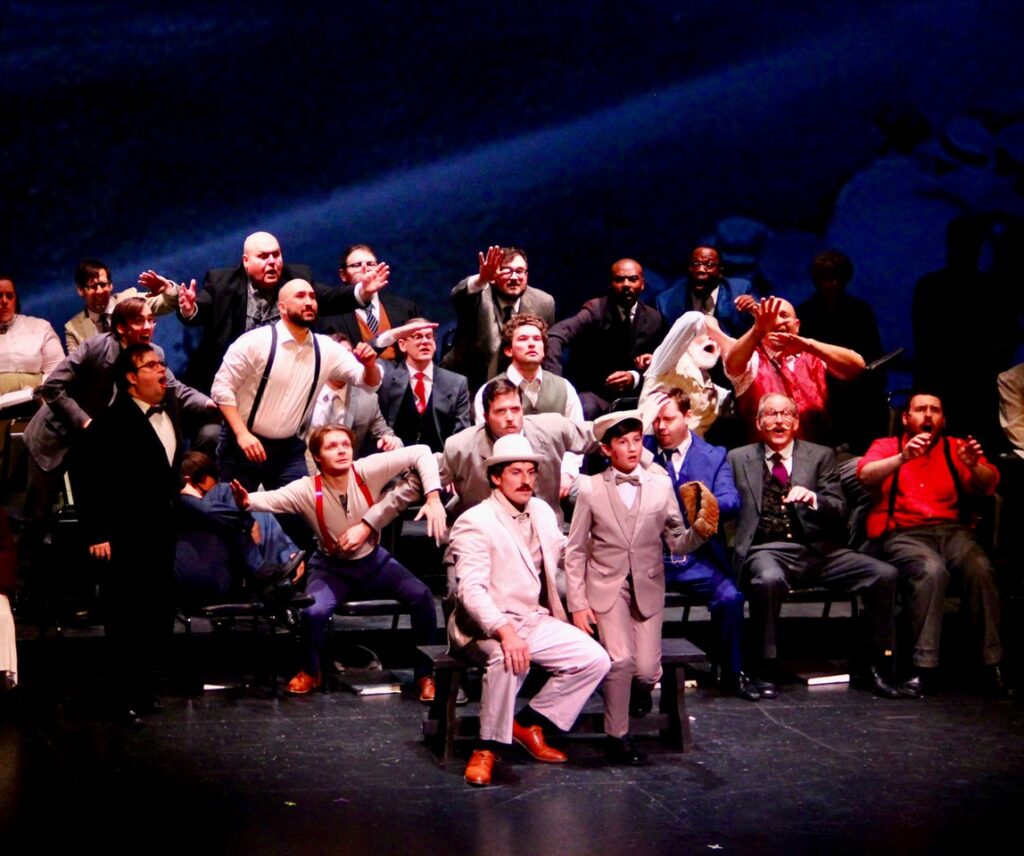
Sitting surrounded by rowdy fans that scream ethnic slurs and crude insults, he is appalled, but his son is amused, echoing the coarse language of the crowd.
The play is partially staged using projections of period images. The chorus of more than 40 is constant presence depicting that social tumult. Members slip away to play roles out front as needed.
In that baseball scene, the men all move to the middle while the women sit disapproving on the sides. For all its uncomfortable comedy the scene makes an important point about the increasing ethnic diversity and the conflict that brings.
As “Ragtime” swings to its conclusion, the Great War has come. We mourn the dead and celebrate those who have survived, and even thrived. The music that gives the show its name has faded. But the tunes America sings still express the same themes of joy, hope, and demands for justice.

